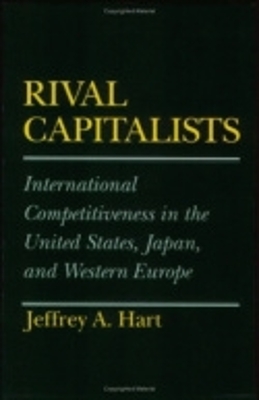Nowhere can the cataclysmic reversals in international competitiveness since the Second World War be traced more clearly than in the United States, Great Britain, France, Germany, and Japan. Surveying the development of the steel, automobile, and semiconductor industries in each of these countries, Jeffrey A. Hart illuminates the role of national policy in a changing world.
Hart describes the global structure of production and consumption in the five major capitalist countries and offers a rich comparative history of their industrial policymaking. He concludes that variations in statesocietal arrangements—and the impact these differences have on the creation and diffusion of new technologies—provide the best explanation for divergences in international competitiveness. In Japan, state and business are allied, but labor is marginalized, whereas in Germany, labor and business are allied, and the state is decentralized. Yet both countries have become increasingly competitive because they have developed institutional mechanisms for technology diffusion. France's state-led system, in contrast, is linked with only moderate competitiveness. The decline of competitiveness in the United States and Britain, Hart concludes, may be attributed to state-societal arrangements that have allowed one actor-labor in Britain, business in the United States-to dominate policymaking.
Rival Capitalists will be an invaluable source for policymakers and business analysts as well as scholars and students of political economy, international relations, industrial organization, industrial sociology, and comparative politics.
- ISBN10 0801426499
- ISBN13 9780801426490
- Publish Date 5 January 1993 (first published 5 November 1992)
- Publish Status Active
- Out of Print 12 July 2000
- Publish Country US
- Imprint Cornell University Press
- Format Hardcover
- Pages 328
- Language English
